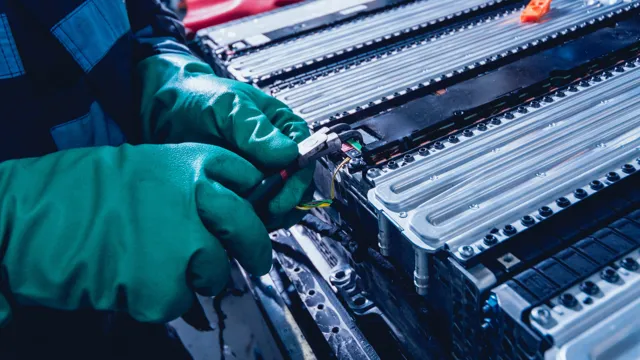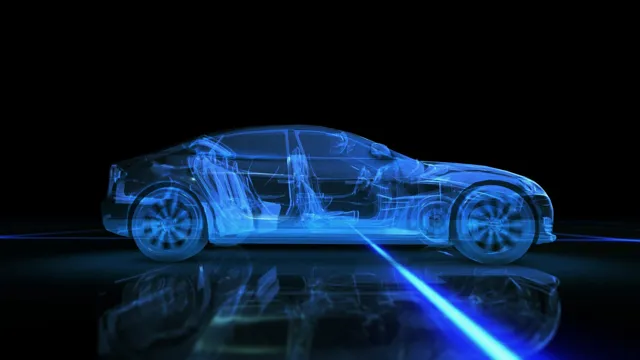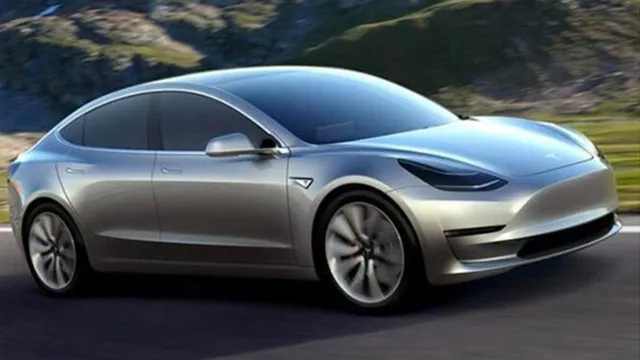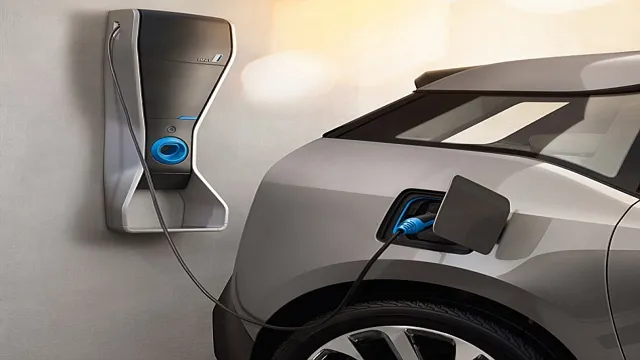Revolutionizing the Roads: The Exciting Future of Electric Car Battery Technology
Electric cars have been on the rise for a few decades now, and they’re becoming more and more prevalent in our daily lives. One of the most significant factors in the growth of electric cars has been the advancement of electric car batteries. The future of electric car batteries is a topic of much discussion, and rightly so.
As the world seeks more sustainable forms of transportation, the development of more efficient, cost-effective, and powerful batteries is crucial. So, what’s next for electric car battery technology? Will we see a breakthrough in battery technology that will revolutionize the electric car industry? Let’s explore the possibilities together.
Current State of Electric Car Batteries
The future of electric car battery technology looks very promising. Today’s electric car batteries are already much more advanced than just a few years ago, and they are continuing to develop rapidly. Notably, researchers are working hard to increase the energy density of batteries, so that electric vehicles can travel longer distances.
Recently, the Tesla company revealed its plans to develop new lithium-ion batteries that will last longer and charge faster. Such advances are a big step in the right direction, and could go a long way in making electric vehicles a more convenient and practical option for drivers. We can also expect to see innovations in battery recycling and repurposing, which will help reduce the environmental impact of battery manufacturing.
Although there is still work to be done, the future of electric car battery technology looks bright, and will undoubtedly bring many benefits to consumers and the environment alike.
Battery Lifespan
Battery lifespan is a crucial factor to consider when purchasing an electric car. The current state of electric car batteries has drastically improved over the years, and the latest technology is more reliable, long-lasting, and efficient than ever before. Lithium-ion batteries are the most commonly used in electric cars because they offer high-energy density, which means they can store a lot of energy in a small space.
They are also lightweight and have a long lifespan, usually around eight to ten years. However, factors like temperature, charging habits, and driving style can impact the battery lifespan. It is essential to follow manufacturer recommendations for charging and maintenance to ensure the optimal lifespan of an electric car battery.
While the initial cost of an electric car may be higher than that of a conventional vehicle, the long-term savings on fuel costs and maintenance, combined with the battery’s extended lifespan, make it a smarter investment for the environmentally conscious driver.
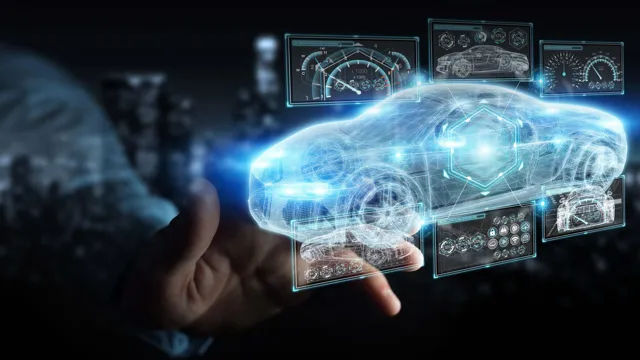
Charging Time
The current state of electric car batteries has drastically improved over the years, leading to faster charging times and longer driving ranges. With advancements in technology, electric cars can now charge in as little as 30 minutes, making it more feasible for long distance travel. The key to these speedy charging times is the use of high-powered charging stations, which typically have a higher voltage and amperage output than traditional charging stations.
Additionally, electric car manufacturers are constantly working to improve battery chemistry and design, which results in increased energy density and longer battery life. As a result, electric car owners can enjoy a more seamless and convenient charging process, reducing the time spent waiting for their car to charge and allowing them to hit the road with ease.
Emerging Battery Technologies
The future of electric car battery technology looks bright with emerging battery technologies. These technologies aim to increase the energy density, safety, and durability of electric vehicle batteries. For instance, solid-state batteries that use solid electrolytes instead of liquid electrolytes can increase energy density and keep up with the ever-increasing energy demands of electric vehicles.
Another emerging technology is lithium-sulfur batteries, which have the potential to double the energy density of current lithium-ion batteries. Additionally, nanotechnologies are being used to improve the performance of batteries by enhancing their conductive properties. These new technologies hold great promise for the future of electric vehicles, enabling them to drive longer distances on a single charge and reducing the need for frequent recharging.
As a result, electric vehicles will become more accessible and appealing to a broader range of consumers, paving the way for a greener future.
Solid State Batteries
As the world moves towards clean energy, the demand for advanced battery technologies is rapidly increasing. One promising emerging technology in this field is solid-state batteries. Unlike traditional lithium-ion batteries, solid-state batteries use a solid electrolyte instead of a liquid one, resulting in better energy density, longer lifespan, and improved safety.
They also have the potential to charge faster and perform better in extreme temperatures. Solid-state batteries are being developed by some of the biggest names in the industry, such as Toyota and Hyundai, and are expected to become increasingly common in electric vehicles (EVs) in the coming years. The development of solid-state batteries could revolutionize the way we power our world, making cleaner energy more accessible and more efficient.
Lithium-Sulfur Batteries
Lithium-sulfur batteries are an emerging technology in the field of energy storage. These batteries use sulfur as the cathode instead of traditional materials like cobalt or nickel. The use of sulfur allows for higher energy density, which means longer-lasting and potentially cheaper batteries.
However, lithium-sulfur batteries have their challenges and limitations. One of the main issues is the degradation of the sulfur cathode, which can lead to decreased performance over time. Researchers are working on solutions to this problem through materials design and new fabrication techniques.
Despite these challenges, lithium-sulfur batteries have the potential to revolutionize the energy storage industry. They could be used in a wide range of applications, from electric vehicles to renewable energy storage. As we continue to seek out sustainable and efficient energy solutions, it’s exciting to see new technologies like lithium-sulfur batteries making their way to the forefront.
Graphene Batteries
Graphene batteries are one of the most promising emerging battery technologies in the market. Graphene is a remarkable material that is incredibly conductive, lightweight, and strong. This super material has the potential to revolutionize the battery industry by creating a battery that is much lighter, smaller, and more powerful than traditional batteries.
Graphene batteries can be charged much faster and last longer than lithium-ion batteries, making it ideal for electric vehicles, smartphones, and other electronic devices. Additionally, graphene batteries are non-toxic, making them an environmentally friendly alternative to traditional batteries. In conclusion, Graphene batteries are a fascinating technology that promises to bring significant changes in the battery industry and improve the efficiency of electronic devices while reducing their environmental impact.
Impact on Environment and Industry
The future of electric car battery technology is looking bright, with promising improvements in both environmental impact and industry growth. With more efficient and longer lasting batteries being developed, the demand for electric vehicles is expected to rise significantly in the coming years. This shift towards sustainable transportation is not only good news for the environment, but also for the economy.
The electric vehicle market is expected to reach a value of $8081 billion by 2027, providing new opportunities for the automotive industry. Additionally, as more and more car manufacturers start producing electric vehicles, the costs of production and distribution are projected to decrease, making these eco-friendly cars more accessible to consumers.
Overall, the development of electric car battery technology has the potential to revolutionize the transportation industry while also lowering greenhouse gas emissions and preserving the planet for future generations.
Reduced Carbon Emissions
Reduced Carbon Emissions in Businesses and the Environment Reducing carbon emissions is essential for the environment, and it has an enormous impact on industries too. Companies that produce low emissions enjoy lower energy costs and save money in the long run. Additionally, businesses with sustainable practices tend to attract more customers who value eco-friendliness.
By reducing their carbon footprint, companies can play a vital role in reducing the impact of climate change. The benefits of reducing carbon emissions are not limited to businesses only. When carbon dioxide and other greenhouse gases are released into the atmosphere, they trap heat and cause global temperatures to rise.
This process can lead to more frequent and severe weather events, such as hurricanes, floods, and droughts. A reduction in carbon emissions can help mitigate the effects of climate change and protect the environment and its inhabitants. Furthermore, reducing carbon emissions can lead to the development of more innovative and sustainable technologies.
As businesses and industries become more aware of their impact on the environment, they are investing in cleaner, renewable energy sources, such as wind and solar power. This transition is also creating new jobs and contributing to economic growth in the renewable energy sector. Overall, reduced carbon emissions have a positive impact on both the environment and industry.
By implementing sustainable practices, businesses can lower their costs, attract more customers, and contribute to a healthier planet. At the same time, reducing carbon emissions can help mitigate climate change and support the development of cleaner and more sustainable technologies. It is important for individuals and businesses to take action in reducing their carbon footprint and making a difference for the benefit of all.
Disrupting the Auto Industry
The auto industry has been facing disruptive changes over the past few years. With the rise of electric cars, autonomous vehicles, and ride-sharing services, traditional car makers have had to adapt quickly. These changes have not only impacted the industry but also the environment.
Electric cars are an increasingly popular alternative to traditional gas vehicles, as they produce fewer greenhouse gas emissions and have a smaller carbon footprint. Additionally, the increased popularity of ride-sharing has led to a decrease in the number of cars on the road, which has a positive impact on air quality and traffic congestion. While these changes have caused some disruption to the traditional auto industry, they have also created opportunities for innovation and growth.
Companies that adapt to the changing landscape can thrive, while those that resist change risk being left behind. Overall, the disruption to the auto industry has had a positive impact on the environment and has created exciting opportunities for the future.
Future Outlook and Challenges
The future of electric car battery technology is incredibly promising. Manufacturers are working hard to develop batteries that are more efficient and can hold a charge for longer periods of time. Some of the latest battery research focuses on increasing the amount of energy that can be stored by using materials such as graphene, silicon, and lithium-sulfur.
Additionally, there’s a significant need to reduce the cost of batteries, making electric cars more mainstream and accessible to a wider range of people. However, there are also challenges to overcome. For example, there remains a need for more charging stations to support the increased use of electric vehicles.
Also, as demand for batteries increases, there is a risk of a shortage in some of the materials needed for production. Nevertheless, the positive outlook on the future of electric car battery technology remains strong. As we continue to move towards more sustainable transportation, the development of high-performance, affordable, and energy-dense batteries will remain a key enabler of the transition to a low-carbon future.
Cost and Accessibility
When it comes to the future outlook of technology, cost and accessibility will continue to be significant challenges. As technology advances and new innovations are introduced, it’s easy for the cost to skyrocket, making it inaccessible to some. However, just like with any new invention, as time goes on, prices tend to decrease, making it more affordable for everyone.
Another aspect of accessibility is making technology accessible to those with disabilities. Companies can work towards providing more accessible technology by implementing features such as screen readers and voice recognition software, making it easier for everyone to use technology. Additionally, there is a growing need for expanding access to technology in developing countries.
While access to the internet and technology has increased significantly over the past few decades, there is still a significant portion of the world that lacks access to technology. It’s important that we work towards bridging this digital divide by investing in infrastructure and technology education programs. As we continue to move forward into the future, it’s crucial that we work towards making technology accessible and affordable for all.
Infrastructure and Charging Stations
Infrastructure and Charging Stations are part of the critical components that impact the adoption and success of electric vehicles. The recent increase in EV sales is likely to continue, and that means we need to prepare our infrastructure for the future. For the most part, charging stations are concentrated in urban areas, which makes it challenging for people living in rural areas to adopt EVs.
The infrastructure’s future outlook is good, with many cities investing in more charging stations, but with the sudden influx of EVs, the current charging infrastructure may not be enough. Therefore, addressing issues such as time and speed are vital to solving the charging infrastructure problems. Moreover, developing more charging infrastructures throughout the country, especially in more remote areas, will allow hat unified approach for EV use.
Lastly, the cost of creating and maintaining EV charging infrastructure remains a challenge for many companies despite the recent acceptance, and it could be a significant barrier for potential buyers if the cost is passed down to them. Nonetheless, it is essential to understand that investing in EV charging stations and infrastructure in general is not only about meeting the current demand but will provide long-term value and support for the EV industry.
Conclusion
The future of electric car battery technology is charged with possibility and promises to be shockingly impressive. With advancements being made in areas such as solid-state and lithium-air batteries, we may see a day where electric cars have a longer range than traditional gas-powered vehicles. And who knows, maybe one day we’ll be able to fully charge our cars in a matter of minutes.
The electrifying advancements in this arena are energizing, and one thing is for sure: the future of electric car battery technology is bright. So charge up, buckle up, and get ready for a ride that’s sure to spark your interest!”
FAQs
What is the current state of electric car battery technology?
The current state of electric car battery technology is rapidly evolving, with continuous improvements in energy density, charge time, and cost.
What are the key challenges in the development of electric car battery technology?
The key challenges in the development of electric car battery technology include improving energy density, reducing production costs, and increasing the lifespan of batteries.
How do advancements in electric car battery technology impact the overall adoption of electric vehicles?
Advancements in electric car battery technology make electric vehicles more efficient, affordable, and convenient, leading to increased adoption as a viable transportation option.
What are some of the most promising breakthroughs in the future of electric car battery technology?
Promising breakthroughs in the future of electric car battery technology include solid-state batteries, lithium-sulfur batteries, and advanced recycling methods to reduce waste and production costs.

